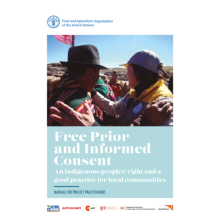Land Library Search
Through our robust search engine, you can search for any item of the over 73,000 highly curated resources in the Land Library.
If you would like to find an overview of what is possible, feel free to peruse the Search Guide.
/ library resources
Showing items 1 through 9 of 11.This Plan assesses how current land-related projects and programmes impact on transparency and land governance and identifies proposed activities to fill any gaps..This resource was published in the frame of the Land Investment for Transformation (LIFT) Programme.
This document summaries LIFTs Costed Implementation Plan to improve land transparency in land governance in Ethiopia..This resource was published in the frame of the Land Investment for Transformation (LIFT) Programme.
This report examines the transparency in land governance in Ethiopia and proposals to improve this..This resource was published in the frame of the Land Investment for Transformation (LIFT) Programme.
This summary examines the transparency in land governance in Ethiopia and proposals to improve this..This resource was published in the frame of the Land Investment for Transformation (LIFT) Programme.
This topic guide for government agencies, service providers and other practitioners examines various dimensions of governance that are key to deliver appropriate benefit-sharing, ensure sustainable exploitation, minimise conflict over access and control, and maximise the contribution of resources
This paper seeks to analyse causes, types and effects of corruption in land governance and provide evidence-based recommendations to address corruption, with a particular focus on Sub-Saharan Africa.
This manual is designed to assist development organizations to respect the right to FPIC when developing and implementing projects affecting Indigenous Peoples.
The technical guide on improving the governance of pastoral lands is designed for several audiences including government and non-government actors.
In Senegal, concern about large-scale land acquisitions has been growing since 2000. Senegalese agriculture has long relied on small-scale family holdings and extensive agriculture.





